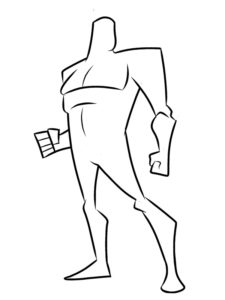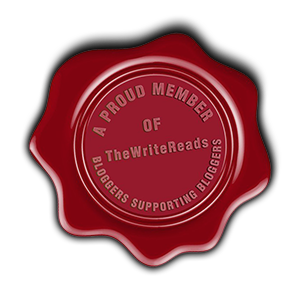 Where do I get my characters? Under the couch? In the back yard? When asked this, I usually look confused… because, don’t they just come with the story? Sometimes.
Where do I get my characters? Under the couch? In the back yard? When asked this, I usually look confused… because, don’t they just come with the story? Sometimes.
For the most part, before I sit down to write a story, I have a basic working knowledge of my characters. Some of the things they like or don’t like… ways they’ll react to certain things… sometimes, I’ll even have a slight idea of what they look like. For the most part, though, I don’t want to know much more than these basic things.
You want your characters to be engaging, right? Will looks do that? Quite possibly. But the most engaging part of a character is finding out about them… what makes them tick… how they argue… figuring out just how much or how little they’re like YOU. When reading, I’m constantly comparing myself to the characters. “I wouldn’t do that.” or “OMG! I like fried SPAM, too!”
When describing my characters, which I do a very minimum of, I refuse to describe anything beyond things that are specific to that character. I want the reader to mold and shape them into what they want that character to be. I’ll engage with dialog and actions and reactions… but I want the reader to paint inside the lines… mold the lump of clay into the perfect form to fit those things.
What’s in a name? For some, it’s really important to find that perfect name for their characters. For me, I just want to feel comfortable with it. Probably a big reason I give my characters common names. Everyone knows a Bill or a Bob. Not everyone can physically pronounce T’Chak’rak’tka. (I cringe, imagining writing a book where I had to type that more than a few times.)
Sometimes, the story decides that you need to leave the realm of comfort and give your character ‘unique’ names. In Mal-Adaptive, almost every character name has a hidden meaning (for example, Ven means friend in Danish). BUT (and that’s a very large but there, folks), they all have a basis from history. I didn’t make any of the names up, so that makes them a little more natural when trying to roll them off your tongue. I’ve even named characters after some of my friends/coworkers.
Another thing my characters tend to do is run the show. Because I’m a pantser, I usually have no idea what is about to happen. I find a scene/place they need to be… drop them inside… give ’em a push… and see what happens. I’ve had many characters throw me for a complete loop this way, but it makes them more natural and human than I could have ever done if I knew every single thing about them. Give yourself some room as the author to find out about your characters while writing… you may be pleasantly surprised.
Roleplay with your characters in your head. Ask them questions and see how they respond. Throw them silly stuff and see what happens (I like to do this to real people, too). Listen to the world around you… and while you do, imagine all these people as characters in a book. Each and every person on this planet is being run by different wants and needs. They all think about love and war and politics differently… and will respond in an infinite degree of possibilities. There is nothing keeping your characters from doing the same.
One last tidbit of complete randomness. Don’t forget the flaws. This will ground your characters faster than nailing their feet to the floor. We’ve all got them. It’s what makes us human. It’s also what makes us likable or despicable in certain cases. Sprinkle in some klutziness… add a dash of psycho… a pinch of illness… a sprig of intrusive thoughts. Flaws are the flavor of characters. If you don’t have any, they’re going to be soooo bland.


Leave a Reply